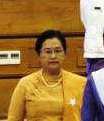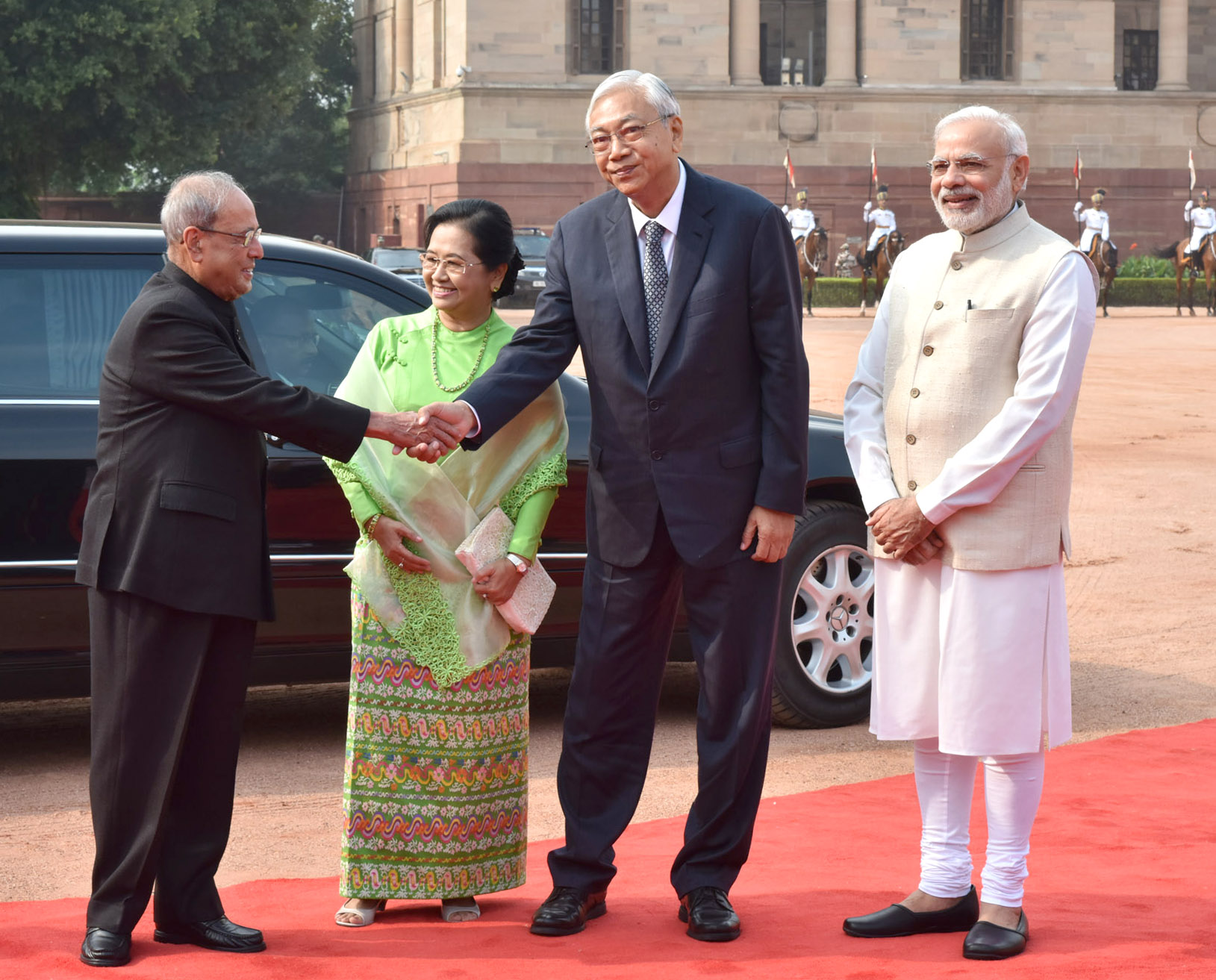1. Early life and education
Su Su Lwin's early life was shaped by her family's political background and her diverse educational experiences, which included schooling in the United States and advanced studies in Myanmar and Australia.
1.1. Family background
Su Su Lwin is the daughter of U Lwin, a distinguished veteran and former deputy prime minister under the Burma Socialist Programme Party (BSPP) regime. Her father was also a founding member and secretary of the National League for Democracy (NLD). Furthermore, Su Su Lwin is a descendant of Prince Maung Maung Tin of the Konbaung dynasty, whose mother was Kyauk Pwa Saw, a princess from the Ban Phlu Luang dynasty of Ayutthaya.
1.2. Education
Su Su Lwin spent her elementary school years in the United States. She later pursued higher education in Myanmar, graduating with a M.A. degree from the Yangon Institute of Education (now known as the Yangon University of Education). She furthered her academic pursuits by obtaining a post-graduate degree from the University of Sydney in Australia.
2. Personal life
Su Su Lwin married Htin Kyaw in 1973. Htin Kyaw is of Mon ethnicity. The couple does not have any children.
3. Career
Su Su Lwin's career reflects her dedication to public service, encompassing extensive work in education, social development, and political representation.
3.1. Professional educator
After her graduation, Su Su Lwin worked for over ten years at Burma's education research bureau. From 1990 to 2005, she served with UNICEF, contributing to child welfare and development initiatives. Following her tenure at UNICEF, she worked as a freelance consultant, primarily focusing on monastic education programs. In 2006, she established Hantha Educators, a local non-profit organization. This organization collaborated with influential local monks to enhance traditional monastic education and develop early childhood care programs. Hantha Educators emphasized the importance of child-centered teaching methodologies and the cultivation of critical thinking skills among students.
3.2. Political career

Su Su Lwin was elected as a Member of Parliament for the Pyithu Hluttaw (lower house) representing the Thongwa Township constituency. She secured this seat in both the 2012 Myanmar by-elections and the 2015 Myanmar general election. During her political tenure, she was involved in drafting the National Education Bill, which later became a subject of significant controversy and led to nationwide student protests in 2015. She also held a leadership position as the Chairperson of the International Relations Committee of the House of Representatives.
3.3. First Lady

Su Su Lwin assumed the role of the First Lady of Myanmar when her husband, Htin Kyaw, became the President in 2016. She served in this capacity until 2018, actively participating in public engagements and supporting her husband's presidency.
4. Assessment and Impact
Su Su Lwin's career has been marked by significant contributions to education and social development, alongside her involvement in political processes that have drawn both praise and criticism.
4.1. National Education Law controversy and student protests
Su Su Lwin played a role in the drafting of the National Education Bill in 2014, a legislative effort intended to reform Myanmar's education system. However, the bill proved highly controversial, particularly due to provisions that were perceived as centralizing control over education and limiting academic freedom. This led to widespread discontent among students and educators, culminating in nationwide student protests in 2015. The protests highlighted deep-seated concerns about the direction of educational reform and the perceived lack of consultation with stakeholders, casting a shadow over the legislative process.
4.2. Positive assessment
Su Su Lwin's contributions to the education sector are widely regarded as positive, particularly through her work with Hantha Educators. Her emphasis on child-centered teaching and critical thinking skills aimed to modernize and improve traditional monastic education and early childhood care. Her long tenure with UNICEF and her efforts to establish a non-profit organization demonstrate a consistent commitment to social development and educational advancement, focusing on foundational learning and community engagement.
4.3. Criticism and controversy
The primary controversy surrounding Su Su Lwin's career stems from her involvement in the drafting of the National Education Law. While intended to reform education, the bill faced strong opposition and nationwide student protests due to its perceived shortcomings in promoting academic autonomy and inclusive decision-making. Critics argued that the law did not adequately address the diverse needs of the education sector and failed to incorporate sufficient input from students and teachers, leading to significant public outcry and demonstrations across the country.